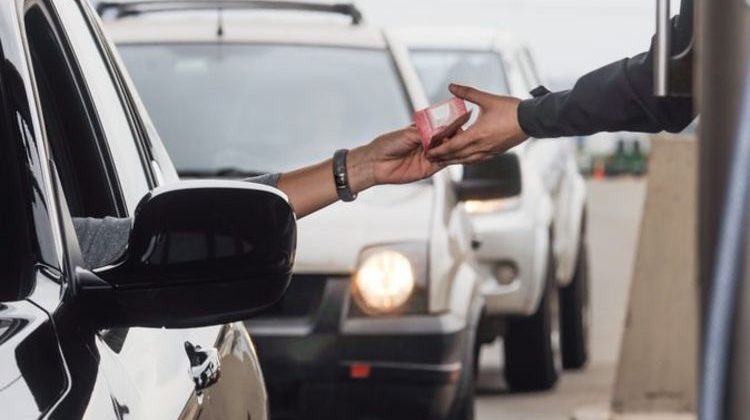With fuel duty already declining and VED income set to fall as more drivers take up electric cars, the government has been left to consider alternative income streams. Data from HM Revenue and Customs yesterday revealed fuel duty was down by £2.4billion over April and May compared to last year.
Total duty earnings on petrol and diesel fuel fell to £2.1billion compared to £4.5billion last year.
This was due to a considerable drop in vehicles on the road due to the coronavirus lockdown but a switch to electric cars could see a similar pattern emerge.
To combat the expected “decline over time”, the Campaign for Better Transport has proposed a new mechanism for the road.
The scheme would charge drivers a fee based on the distance travelled and pollution generated per trip rather than a flat fee.
The Campaign for Better Transport has proposed a new mechanism based on distance travelled instead of flat fee.
They say this would reflect journeys “more appropriately” and would help account for “pollution and congestion at the same time”.
A recent study at the Low Carbon Vehicle Partnership conference found there was public support for the new proposals.
The survey found 60 percent backed the idea with just over a quarter saying they were against the measure.
DON’T MISS
Car tax changes may see price rises for some petrol and diesel owners [INSIGHT]
Car tax changes may require more charging stations [ANALYSIS]
Experts ‘missed a trick’ abolishing tax discs [COMMENT]
The Campaign for Better Transport says local authorities in England have had powers to introduce road charging since 2000.
They say income generated from the scheme should be retained by local transport authorities which could help fund road maintenance schemes.
The report says modern technology would allow for this “more sophisticated approach” to charging road users than current systems.
The report said: “Technology currently available would allow a more sophisticated approach to charging compared to existing approaches.
“A charging mechanism should be based on distance travelled, time of day, location, and level of emissions and impact on the environment of the vehicle.
“Such variable, distance-based charging would reflect the impacts of individual journeys more appropriately and, unlike clean air zones or congestion charges, account for both pollution and congestion at the same time.”
Chancellor Rishi Sunak froze fuel duty rates for a tenth year running during his budget statement in March.
However, some have called for the fuel duty to rise if a new road charge comes into effect to help generate extra revenue for the sector.
The Institute for Fiscal Studies (IFS) estimates the Treasury may have lost £5.5billion a year since 2010-11 for failing to increase fuel duty in line with inflation.
Claire Haigh, chief executive of Greener Journeys said extra income raised should be used to boost take up of electric vehicles and fund public transport improvements.
She said: “The Chancellor should take the opportunity of record low oil prices to increase fuel duty.
“The money should be ring-fenced to incentivise the take-up of cleaner vehicles and improve public transport.
“At the very least, the Chancellor should end the freeze and increase fuel duty in line with inflation.”
Source: Read Full Article



